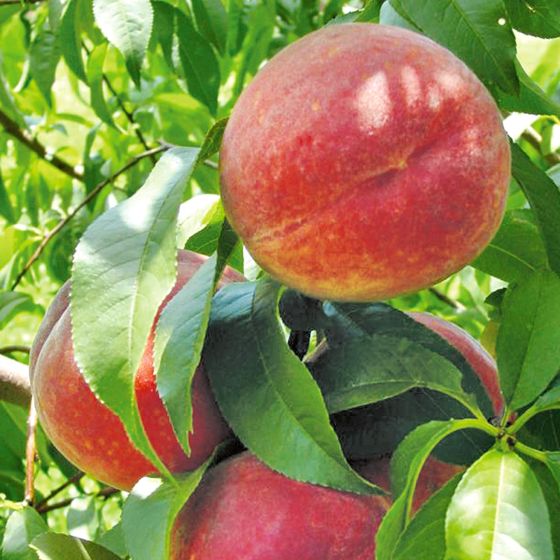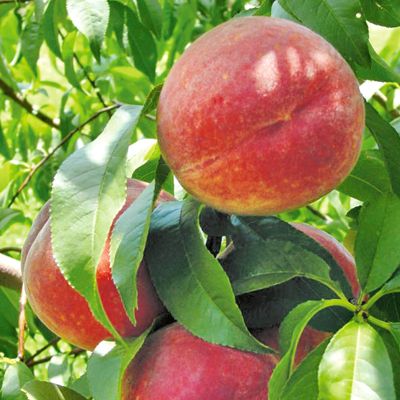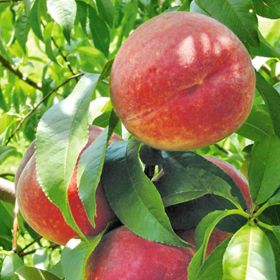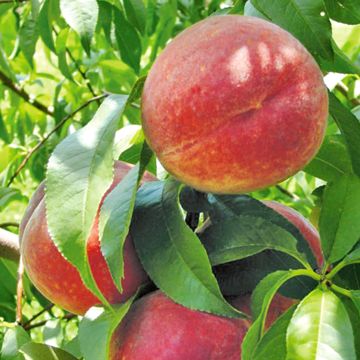Description
Start the season off right! An early producer of beautiful peaches. This variety bears crops before almost any other. The fruit is firm and attractive with sweet yellow flesh that makes it a favorite at any table. Developed in Beltsville, Maryland, released in 1980. Resistant to bacterial spot. Semi-freestone. Ripens in July. Self-pollinating.
Survival Guaranteed!


Since 1816, Stark Bro’s has promised to provide customers with the very best fruit trees and plants. It’s just that simple. If your trees or plants do not survive, please let us know within one year of delivery. We will send you a free one-time replacement, with a nominal shipping fee of $9.99. If the item in question is not available, we can issue a one-time credit to your account equaling the original product purchase price or issue you a refund. Read more about our warranty policy.
Characteristics
| Bloom Color | Pink |
| Bloom Time | Early |
| Chill Hours | 850 - 900 |
| Fruit Color | Red |
| Fruit Size | Medium - Large |
| Hardiness Zone Range | 5 - 8 |
| Pollination | Self-Pollinating |
| Ripens/Harvest | July |
| Shade/Sun | Full Sun |
| Soil Composition | Loamy |
| Soil Moisture | Well Drained - Average Moistness |
| Soil pH Level | 6.0 - 7.0 |
| Taste | Sweet |
| Texture | Firm |
| Years to Bear | 2 - 4 |
Size & Spacing
Mature Size
Recommended Spacing
Zone Compatibility
Pollination
This variety is self pollinating.
Tools & Supplies
Planting & Care
Learn all about how to grow peach trees in The Growing Guide. An entire section of our website dedicated to your growing success.





